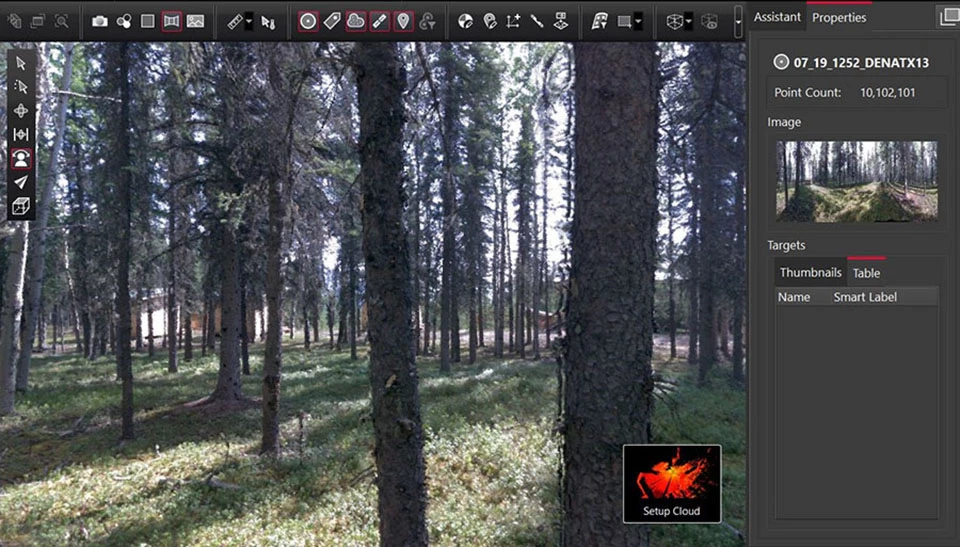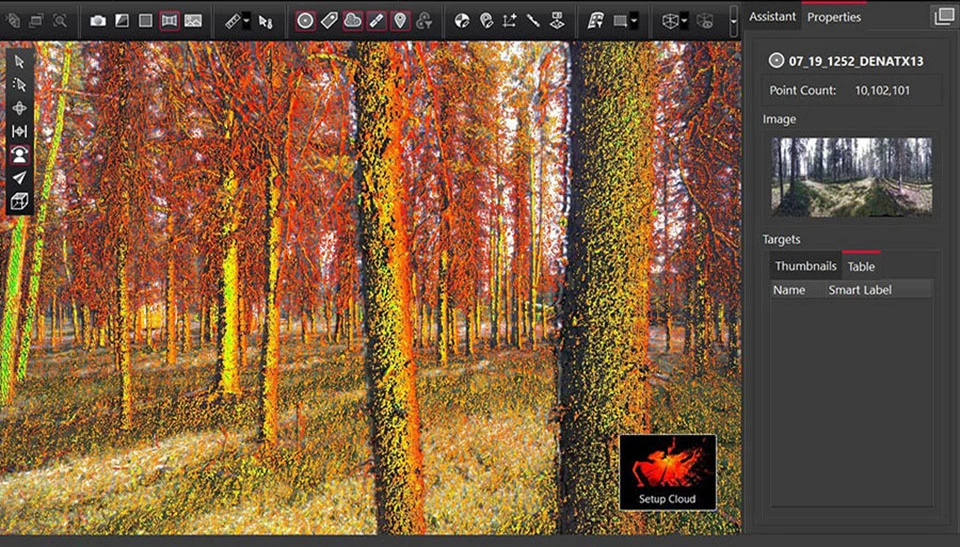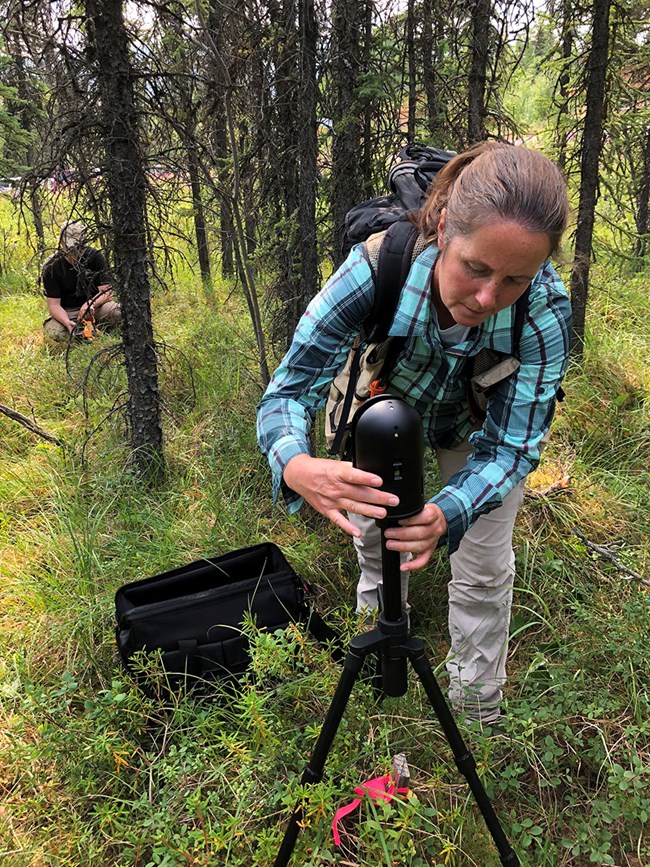Last updated: December 14, 2021
Article
Reducing fire risk – treating, burning, and monitoring fuels treatments in Denali and Wrangell-St. Elias headquarters

Sarah Hayes, NPS
Fuels management, comprised of thinning and limbing of flammable trees and shrubs, reduces the potential for crown fire and provides better access for fire fighters to protect structures. Burn piles are used to dispose of the woody debris from thinning that is not used for other purposes (i.e., stoking the woodstove at a remote cabin). Monitoring assesses the effectiveness of the fuels treatments: Did we reduce the fire risks? When does it need to be treated again? Are there invasive plants or changes in the understory after treatment?
The NPS fire programs in Alaska (Region 11) implement fuels treatments around structures to increase opportunities to manage vegetation through naturally occurring wildfire and to reduce potential wildfire impacts to structures. Fuels crews of 4-6 people are hired by the NPS Alaska Area programs. In 2021, the Western Area fuels crew thinned around the Denali Administrative Camp and other sites.

Brian Mork, NPS
Monitoring fuels treatments provides fire management with important information on the effectiveness and treatment schedule. In 2021, the NPS fire ecologists and fuels crew collected tree and fuels data at 46 plots in Denali and 19 plots in Wrangell St. Elias where past treatments have occurred and new treatments are being implemented. The fire ecology program utilized new technology to monitor; 3D Terrestrial Lidar Scans (TLS) were taken at the plots in Denali to assess changes before and after fuels treatments for variables such as tree density, canopy heights and cover. The field plot data will be used to calibrate the scanner data with field measurements.



Jennifer Barnes, NPS
Tags
- denali national park & preserve
- wrangell - st elias national park & preserve
- denali national park
- fire and aviation management
- wildland fire
- alaska
- wrangell - st elias national park
- success stories
- fire story
- fuels treatment
- monitoring
- wrangell st. elias
- debris piles
- burn
- fuels management
- collaboration
- denali
- fire ecology
- wildfire management
- wildland fire management
